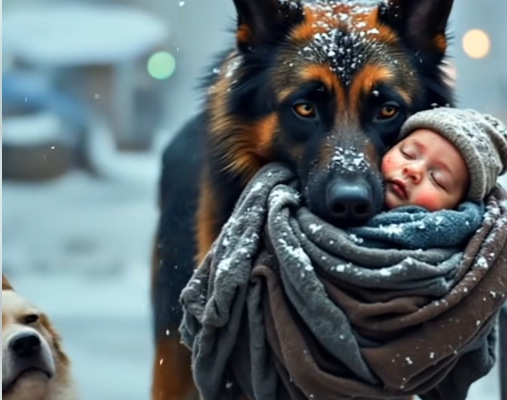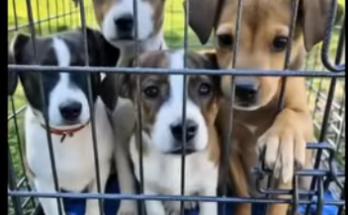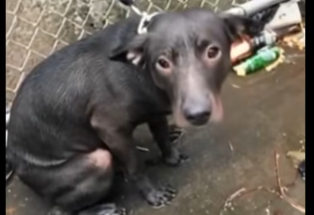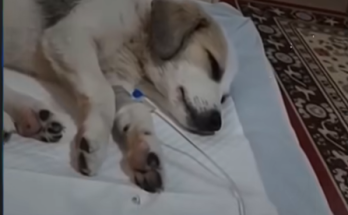Dawn wrapped the city in soft light, but Max, a stray dog with worn, reddish-black fur, was already on his feet. He belonged to no one, and the city didn’t belong to him either. For eight long years, Max had lived on the streets, and every morning began the same way — searching for food and a safe place to rest.

He knew the rhythms of the city the way an old watchman knows the factory schedule. Max knew when bakeries opened and when restaurant leftovers were tossed out. He knew which alley was warm and which should be avoided. His life was a map of survival drawn not with ink, but with pawprints, scratches, and quiet, almost invisible tragedies.
Max avoided people. Not because he hated them — he was far too wise to waste energy on hate. He simply understood that even the friendliest voice could end in a kick. His scars were not just physical. Once, a boy threw a rock at him just to impress his friends. Another time, a kind woman offered him food, only for her husband to chase him away, knocking over the bowl. Max learned: food was luck, but trust was a luxury he could no longer afford.
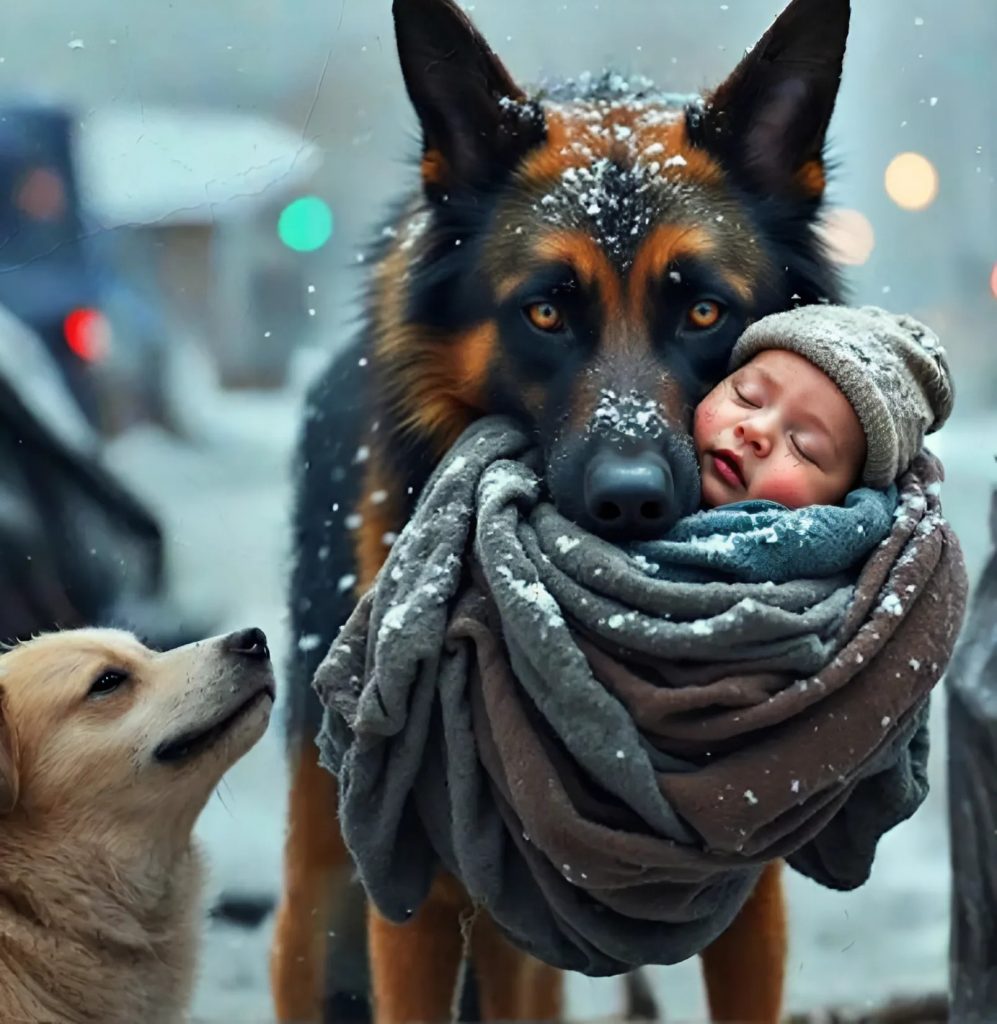
That winter was harsh. The cold crept through cracks in windows and under alley doors. Even the cars sounded different — muffled, like in a deep sleep. Max stopped going to the park. Too noisy, too crowded. He found a new place — an abandoned shed on the city’s edge. The roof leaked, the air smelled of mold, and birds nested above. But for him, it was shelter.
Each day, he observed people. They rushed, shouted into phones, laughed, cursed, forgot each other by the next traffic light. He watched them like an old man watches youth — with quiet exhaustion and the sad knowledge that time eventually teaches everyone.
One day, he saw a girl. She was sitting on a bench, her socks brightly mismatched, a notebook beside her, scribbling something inside. She noticed Max but didn’t flinch. Slowly, she held out a piece of bread. He approached, but cautiously. He ate gently — as if fearing it would vanish.
That’s how their friendship began. No words. No touch. Just her, every morning, on the same bench, sharing her breakfast. Sometimes she read aloud from her notebook. Sometimes they sat in silence. Her name was Lera. She was alone too, just like Max. Divorced parents, school she hated, temporary friends. Somehow, this old dog became the only constant in her life. He didn’t ask, didn’t judge, didn’t need explanations.
Word of their bond reached local volunteers. One evening, a woman came to the shed with a blanket and a bowl of food. Max didn’t run. He recognized that look — calm, without threat, something motherly. That night, for the first time in years, he slept warm.
A month later, Lera and her mother adopted him. Max didn’t understand at first that this was forever. He still slept near the door, ready to leave. He still ate quickly, as if the food might disappear. But time changed him. He started to trust. He started to wait. He started to live.
Now Max is nine. His fur is still reddish-black, but clean and well-kept. He walks the same streets now, but on a leash. Sometimes they pass the old shed, and he pauses briefly — like a man looking at a house he no longer lives in. He hasn’t forgotten. He’s simply moved on.
This story isn’t really about a dog. Or a girl. It’s about how a fragile creature can remind us what loyalty means. How trust doesn’t need words. And how sometimes, to change a life, all you need to do is not turn away.
